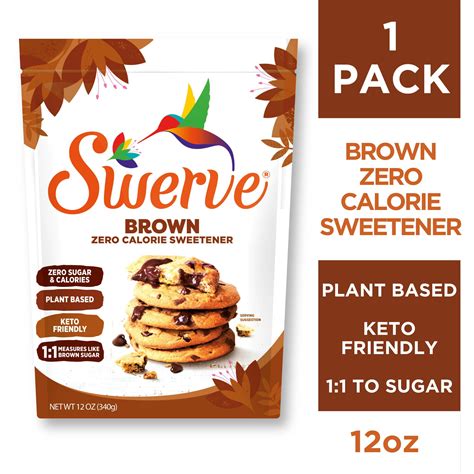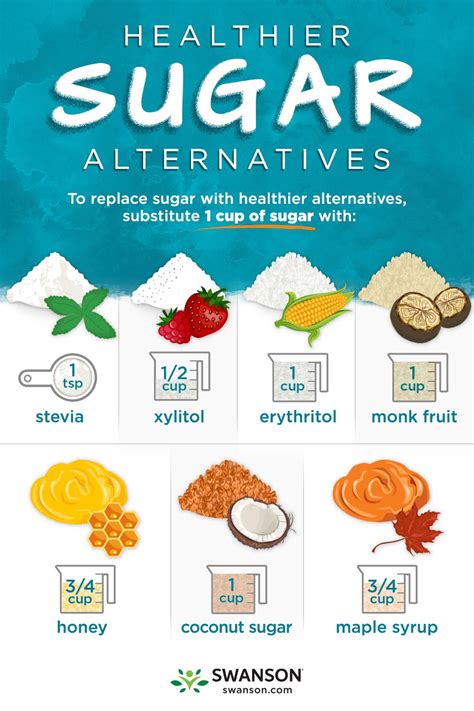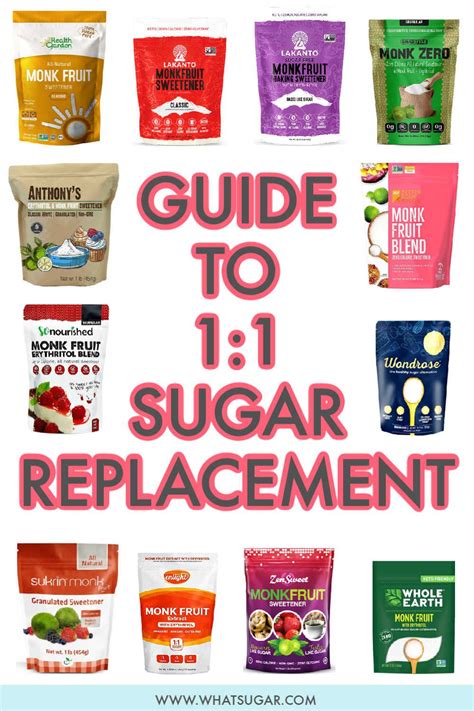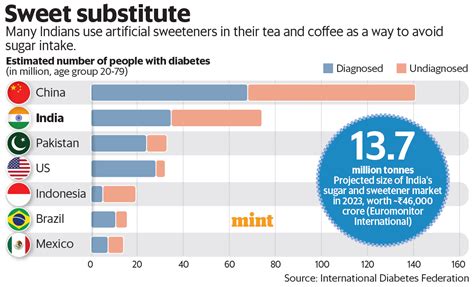Intro
Discover natural sugar replacement sweeteners, low-calorie alternatives, and healthy sweetener options for baking, cooking, and diets, offering a guilt-free sweetness experience.
The world of sweeteners has undergone a significant transformation in recent years, with a growing demand for alternatives to traditional sugar. This shift is driven by increasing health concerns, such as obesity, diabetes, and tooth decay, which have been linked to excessive sugar consumption. As a result, sugar replacement sweeteners have become a popular choice for those seeking to reduce their sugar intake without sacrificing the sweet taste they crave. With a vast array of options available, it's essential to understand the benefits, drawbacks, and differences between these sweeteners to make informed choices.
The importance of sugar replacement sweeteners cannot be overstated, as they offer a viable solution for individuals who want to manage their sugar intake while still enjoying their favorite foods and beverages. These sweeteners have been extensively researched, and many have been approved by regulatory agencies for use in various products. From natural sweeteners like stevia and honey to artificial sweeteners like aspartame and sucralose, the options are diverse and continue to evolve. As the demand for sugar replacement sweeteners grows, manufacturers are responding by developing new products and formulations that cater to different tastes, dietary needs, and preferences.
The market for sugar replacement sweeteners is expected to continue its upward trend, driven by increasing consumer awareness about the health risks associated with sugar consumption. As people become more health-conscious, they are seeking out alternatives that can provide the same sweetness without the negative consequences. This shift is not only driven by individual choices but also by regulatory efforts to reduce sugar intake and promote healthier eating habits. With the sugar replacement sweetener market projected to reach new heights, it's crucial to explore the various options available, their benefits, and their potential drawbacks to make informed decisions about sugar intake.
Sugar Replacement Sweetener Types

Natural Sugar Replacement Sweeteners
Natural sugar replacement sweeteners are gaining popularity due to their perceived health benefits and natural origins. Stevia, for example, is a plant-based sweetener that is 200-300 times sweeter than sugar and has been shown to have potential health benefits, such as lowering blood pressure and blood sugar levels. Honey, on the other hand, is a natural sweetener that contains antioxidants and has antimicrobial properties, making it a popular choice for those seeking a more natural alternative to refined sugar.Benefits of Sugar Replacement Sweeteners

Working Mechanisms of Sugar Replacement Sweeteners
The working mechanisms of sugar replacement sweeteners vary depending on their type and composition. Natural sweeteners, like stevia, work by binding to sweet receptors on the tongue, triggering a sweet response without raising blood sugar levels. Artificial sweeteners, like aspartame, are designed to be many times sweeter than sugar, allowing for smaller amounts to be used to achieve the same level of sweetness. Sugar substitutes, like xylitol, are not fully digested by the body, reducing calorie intake and minimizing the impact on blood sugar levels.Steps to Choose the Right Sugar Replacement Sweetener

Practical Examples of Sugar Replacement Sweeteners
Sugar replacement sweeteners can be used in a variety of ways, from baking and cooking to sweetening beverages and desserts. For example, stevia can be used to sweeten tea or coffee, while xylitol can be used as a sugar substitute in baking. Sucralose, on the other hand, is commonly used in low-calorie foods and beverages, such as diet sodas and sugar-free gum.Statistical Data on Sugar Replacement Sweeteners

Future Outlook for Sugar Replacement Sweeteners
The future outlook for sugar replacement sweeteners is promising, with ongoing research and development focused on creating new and innovative products. As consumer demand for healthier and more natural alternatives to sugar continues to grow, manufacturers are responding by developing new sugar replacement sweeteners that cater to different tastes, dietary needs, and preferences. With the global sugar replacement sweetener market expected to continue its upward trend, it's essential to stay informed about the latest developments and advancements in this field.Conclusion and Final Thoughts

We invite you to share your thoughts and experiences with sugar replacement sweeteners in the comments below. Have you tried any of the options mentioned in this article? What are your favorite sugar replacement sweeteners, and how do you use them in your daily life? Your input and feedback are valuable to us, and we look forward to hearing from you.
What are the benefits of using sugar replacement sweeteners?
+Sugar replacement sweeteners offer several benefits, including reducing calorie intake, managing blood sugar levels, and promoting oral health. They can also help with weight loss and improve overall health.
Are sugar replacement sweeteners safe to use?
+Most sugar replacement sweeteners have been approved by regulatory agencies for use in various products. However, it's essential to follow the recommended daily intake and be aware of any potential allergens or ingredients that may cause adverse reactions.
Can sugar replacement sweeteners be used in baking and cooking?
+Yes, sugar replacement sweeteners can be used in baking and cooking. However, it's essential to choose the right sweetener for the specific recipe and follow the recommended conversion rates to ensure the best results.
